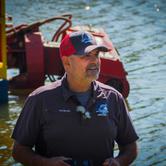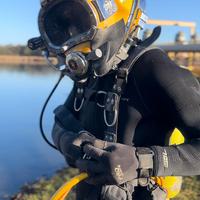How to Hire a Commercial Diving Company
When it comes time to hire a company to perform an underwater inspection or other job that requires the services of a diver, it's essential to perform your due diligence. After all, how will you ensure the company you're contracting with is responsible and capable and will reduce risk exposure? Underwater diving, by its very nature, is a dangerous job. Not only for the divers but the equipment that they're working on. One misstep by an inexperienced diver can have devastating legal and financial consequences that could haunt your company for years to come. These consequences are why you should only hire a commercial diving company with decades of experience and specializing in all aspects of underwater diving.
Lowest Bid is Not Always the Best Bid
As a purchasing agent, project manager, or engineer, you must hire a commercial diving company for a specific project. In that case, you should be wary of companies/individuals who promise more than they can deliver. On any project, you'll most likely get bids from local recreational divers who claim they can handle the job because their recreational YMCA dive card says so. There is a vast difference between recreational and professional commercial divers. Recreational divers only receive training to go underwater with a SCUBA apparatus. Commercial divers are trained in a formal setting and serve years of apprenticeship—much like carpenters or electricians did before they became journeymen. Commercial divers are not only trained for specific jobs but also undergo rigorous safety training and are well-equipped to handle any emergency that might arise during their dive. However, dive organizations such as NAUI, PADI, and YMCA have all stated that their training cards are ONLY good for recreational diving. If you hire a recreational diver and something goes wrong – death, dismemberment, drowning, or property damage – your company could be legally held liable for the negligence of the contractor. Reasons like this are why trying to save a few bucks by hiring a recreational diver is a risk that no company should take.
Rules & Regulations
If you've never hired a commercial diving company before, there are a few things you should take into consideration. For example, OSHA requires three people trained in commercial diving to be present at any job site. These three people should consist of:
- Diving supervisor
- Diver
- Tender (who tends to the safety of the diver when they are in the water)
These requirements by OSHA are the bare minimum. For some jobs, the commercial diving company may require more people to ensure safety and that the job gets done right. While your job specification may indicate that three people are needed, contractors who bid are well within their rights to ask for more people based on their planning and assessment. You should consider their recommendations seriously – they're the experts. You should also require (and ensure) that the diving company has adequate insurance coverage. Your company could be legally liable if someone gets injured or property is damaged. It would help if you also asked for verifiable documentation that the insurance is valid and has enough financial coverage in case of an accident.
Due Diligence
Your diving contractor should have a "diving plan." It will detail how they intend to accomplish the underwater job, including how many people will be on the job site, the method(s) they will employ, the type of equipment they will use, and how records will be provided once the job is completed. In addition to including the basic details of the job, the dive plan might also include:
- Maximum dive time for each diver
- Names/job duties of each team member
- Contact info for the dive supervisor
- Anticipated underwater conditions
- Any other pertinent information
Bids
When the bids on your job start coming in, how do you determine what to pay? For starters, looking at the actual range of the bids is a good idea. If the lowest bid is $10,000 and all other bids hover around the $25,000 mark – something is seriously off with the $10,000 bid. That low bid could indicate that the bidder does not fully understand the scope of the work. To that point, you should indicate in your job posting that you are not obligated to accept the lowest bid. How can someone bid so low on a job where everyone else is at least double the lowest bid? It is unfortunate, but fly-by-night divers do exist. They can bid so low because they need insurance or are inadequate. Their equipment must adhere to proper safety standards, or they have revoked their license. By accepting the lowest bidder, you're putting your company at risk if anything goes wrong.
Putting it All Together
Hiring a commercial underwater dive company should be taken seriously. By performing all due diligence and checking out the bidders before you announce the winning bid, you will have done all you can to ensure the job's safety, security, and success. At American Underwater Services, we have over 26 years of commercial diving experience. We're licensed, insured, and bonded. We have more than 30 workers and perform around 500 jobs per year. Even though we're in Fort Worth, we can travel anywhere in America to assist you safely and successfully complete the job. Contact us today for an estimate, and show why our clients care about our dive services!




